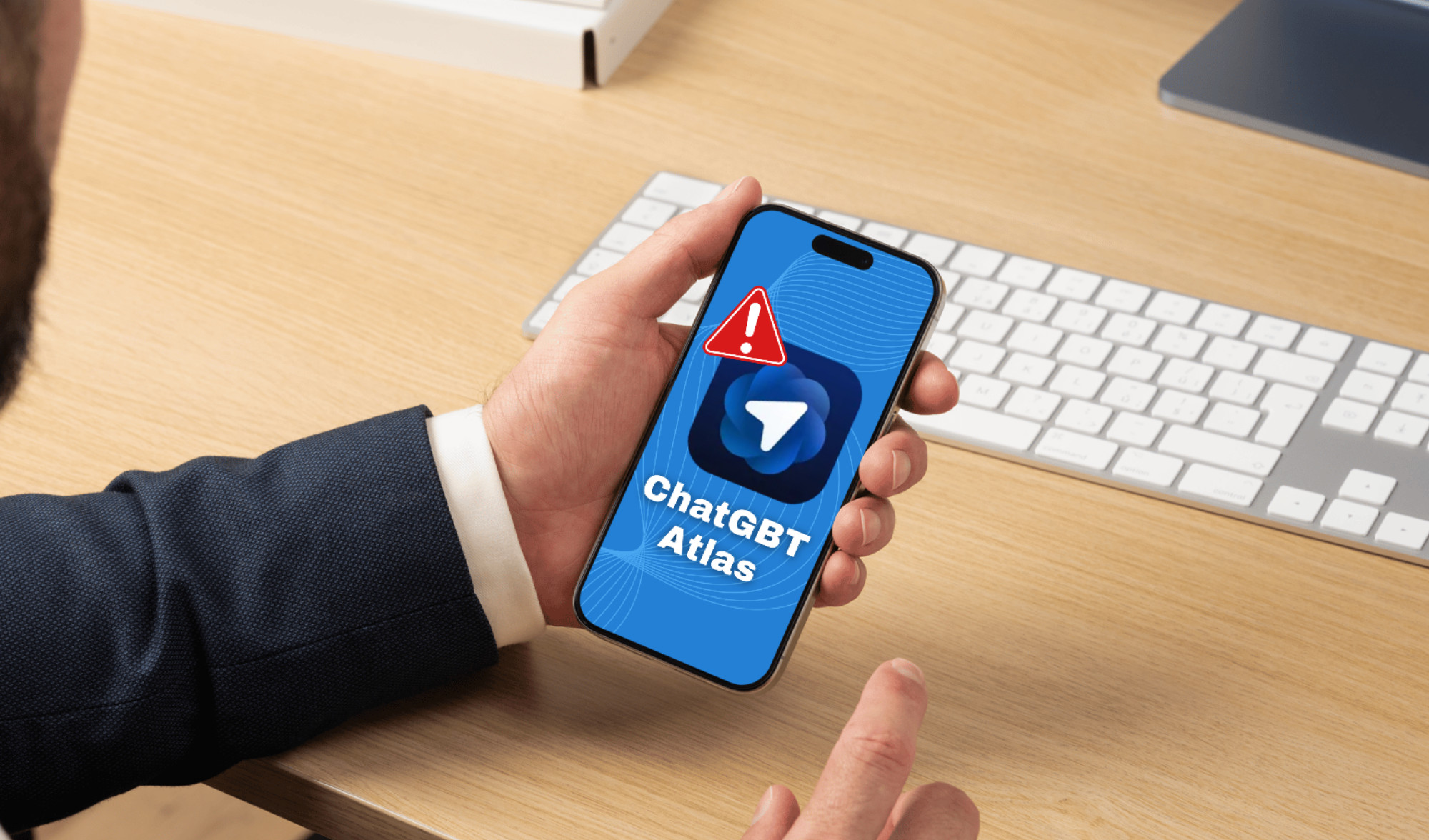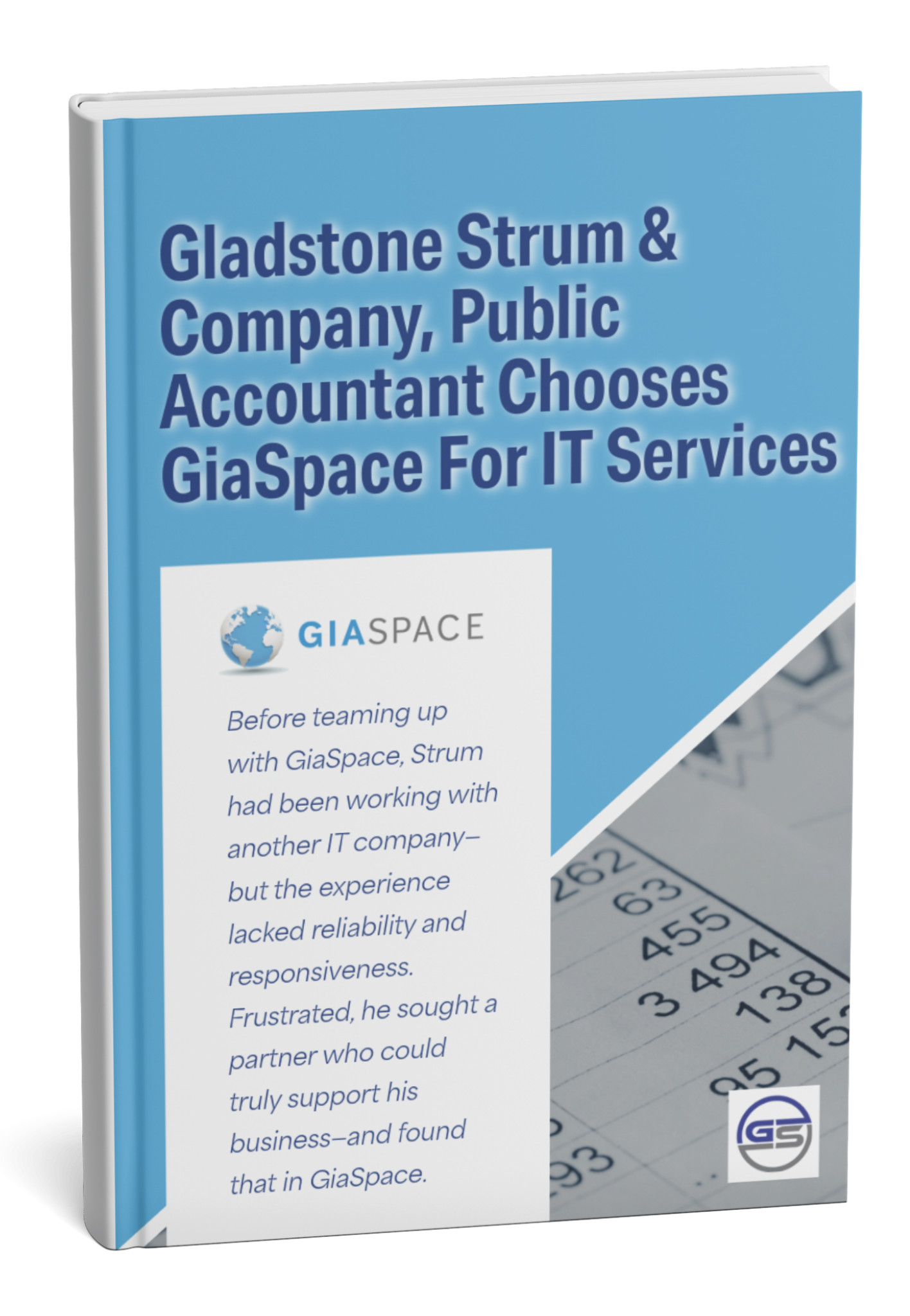Why Email Encryption Is Vital for Lawyers
Key Points:
- Cyber attacks and security breaches are rising among small to medium-sized organizations.
- Email encryption is vital in the legal industry due to the types and amount of sensitive information that lawyers and law firms handle.
- Unencrypted emails risk your client’s information and can have severe repercussions for your law firm.
Today cybersecurity is vital in every industry. Protecting intellectual property and sensitive email messages should be a priority regardless of profession. Hacked or leaked emails can have ramifications that affect your clients and your business.
Like most businesses, email has become the most common method for lawyers to exchange information with clients. No matter your profession, email encryption is a smart way to protect yourself and your clients, but it is essential for lawyers.
What is Email Encryption, and How Does it Safeguard Confidential Legal Communications?
Emails are prone to the disclosure of information. While most emails are encrypted during transmission, they are stored in plain text, leaving them vulnerable. Emails that are not encrypted are vulnerable to hackers, making the content readable by persons other than the designated recipients.
Email encryption is a sophisticated security measure that transforms your sensitive messages and attachments into an unreadable format, protecting them from unauthorized access during transit and storage. Think of it as locking your confidential documents in a secure digital vault before sending them through the internet. Only the intended recipient, possessing the correct digital “key,” can unlock and read the content.
| Key Statistic | Value / Impact | Source / Context |
|---|---|---|
| Law Firms Experiencing Security Breach (2023) | 29% (of firms surveyed) | ABA 2023 Cybersecurity Tech Report. Breaches include lost/stolen devices, hacking, website exploits, or physical break-ins, highlighting prevalent vulnerabilities. |
| Average Cost of Data Breach (2024) | $4.88 Million (Global Avg.) | IBM’s 2024 Cost of a Data Breach Report. For organizations with less than 500 employees (typical of many law firms), the average cost was approximately $3.31M. |
| Lawyers Using Email Encryption (U.S.) | Only 39% (as of 2020) | ABA 2020 Legal Technology Survey Report. A significant majority still rely on disclaimers which offer no actual security, indicating a critical gap. |
For legal professionals, this process is paramount. When you send an unencrypted email, it’s akin to sending a postcard – anyone who intercepts it can read it. With encryption, even if a cybercriminal intercepts your email containing privileged client information, case details, or financial data, they will only see scrambled, unintelligible characters. This robust protection ensures that your communications remain confidential, preserving the integrity of attorney-client privilege and protecting your firm from devastating data breaches.
Why is Email Encryption a Non-Negotiable for Upholding Attorney-Client Privilege?
Attorney-client privilege is the cornerstone of the legal profession, ensuring open and honest communication between lawyers and their clients. It’s a fundamental ethical duty and a legal protection. However, this privilege can be severely compromised if communications are intercepted or exposed due to a lack of proper security.
Unencrypted email poses a direct threat to this sacred trust. Every confidential detail shared – from case strategies and settlement discussions to personal client information and financial records – becomes vulnerable. If these communications are intercepted, not only is client confidentiality breached, but your firm could face severe ethical violations, disciplinary actions from state bar associations, and potentially malpractice lawsuits. Email encryption acts as a digital shield, ensuring that only you and your client can access the privileged information, thereby fulfilling your professional and ethical obligations.
What Specific Regulations Mandate Email Security and Encryption for Law Firms in Florida?
Law firms in Florida, like those across the U.S., operate under a complex web of ethical obligations and regulatory requirements that directly impact how they handle sensitive client data, including email communications. While no single regulation explicitly states “thou shalt encrypt every email,” the implicit requirements for data security are clear and stringent.
Key regulations and ethical rules that underscore the need for email encryption include:
- Florida Bar Rules of Professional Conduct: Specifically, Rule 4-1.6 (Confidentiality of Information) requires lawyers to protect client information. The Florida Bar has issued ethics opinions emphasizing the need for reasonable security measures when using technology for client communications.
- HIPAA (Health Insurance Portability and Accountability Act): If your law firm handles Protected Health Information (PHI) for healthcare clients (e.g., medical malpractice, personal injury cases involving medical records), you are considered a “Business Associate” and must comply with HIPAA’s Security Rule. This rule mandates administrative, physical, and technical safeguards for electronic PHI, often making encryption an “addressable” but highly recommended (and often necessary) measure for data in transit and at rest.
- GLBA (Gramm-Leach-Bliley Act): Law firms providing financial services (e.g., real estate transactions, trust management, tax planning) must comply with GLBA’s Safeguards Rule, requiring them to protect the privacy of client financial information. This often necessitates encryption for sensitive financial data exchanged via email.
- CCPA (California Consumer Privacy Act) / CPRA (California Privacy Rights Act): While specific to California, these acts set a precedent for data privacy that impacts any firm handling personal information of California residents. They emphasize “reasonable security procedures and practices,” and data breaches involving unencrypted data can lead to private rights of action. Adhering to these broader privacy principles strengthens security for all clients.
- Florida Information Protection Act (FIPA): This state-specific law mandates that any entity (including law firms) holding personal information of Florida residents must take “reasonable measures” to protect and secure that data. In the event of a data breach, FIPA outlines strict notification requirements, with potential penalties for non-compliance. Encryption can be a key component of demonstrating “reasonable measures” and can even exempt you from notification in certain cases if the data was unreadable/unusable due to encryption.
Navigating these complex regulations requires a proactive approach to cybersecurity, with email encryption standing out as a fundamental safeguard.
How Does Unencrypted Email Expose Law Firms to Data Breaches and Ethical Violations?
The risks of using unencrypted email in a legal practice are profound and far-reaching, extending beyond mere inconvenience to significant financial, reputational, and ethical fallout.
- Data Interception & Breaches: When emails are sent unencrypted, they travel across networks in plain text. Cybercriminals can easily intercept these messages using simple tools, gaining access to highly sensitive client data, privileged communications, and confidential case details. This direct access constitutes a data breach, triggering costly investigations, mandatory notification requirements (under laws like FIPA), and potential litigation.
- Loss of Attorney-Client Privilege: As previously discussed, unencrypted communications are inherently vulnerable. If a third party gains access to privileged information via an unencrypted email, the privilege may be deemed waived, severely jeopardizing your client’s case and your firm’s standing.
- Ethical Violations & Disciplinary Action: State bar associations, including The Florida Bar, have a clear expectation that lawyers will act competently to safeguard client information. Failure to implement reasonable security measures, such as encryption for sensitive email, can be viewed as an ethical lapse, leading to disciplinary actions, fines, and even suspension of licensure.
- Reputational Damage: News of a data breach or ethical violation can swiftly erode client trust and damage your firm’s reputation beyond repair. In a profession built on trust and confidentiality, such incidents can lead to significant client attrition and difficulty attracting new business.
- Financial Penalties & Lawsuits: Beyond regulatory fines, law firms are increasingly facing civil lawsuits from clients whose data was exposed due to negligence. The financial burden of these lawsuits, legal defense costs, and potential settlements can be crippling.
In essence, using unencrypted email for legal communications is like leaving your firm’s most sensitive documents in an unlocked filing cabinet on a busy street. The risk is simply too high.
What Are the Key Features and Benefits of Legal Email Encryption Solutions for Attorneys?
Modern email encryption solutions designed for legal professionals offer more than just basic data scrambling. They provide a suite of features that enhance security, streamline workflow, and ensure compliance.
- Automated Encryption: The best solutions integrate seamlessly with your existing email client (e.g., Outlook, Gmail) and automatically encrypt emails containing sensitive keywords, attachments, or recipients, minimizing manual effort and human error.
- Secure File Attachments: Beyond text, these solutions encrypt attachments of any size or type, ensuring that documents like contracts, medical records, or financial statements remain protected.
- Recipient Control & Authentication: Features like recipient authentication (e.g., requiring a password or secure portal login) ensure that only the intended party can access the encrypted message. Some solutions even offer read receipts and the ability to revoke access after sending.
- Audit Trails & Reporting: Comprehensive logging provides an immutable record of who sent, received, and accessed encrypted communications, crucial for compliance audits and incident response investigations.
- Ease of Use for Senders & Recipients: User-friendly interfaces are paramount. A good solution makes sending encrypted emails simple for lawyers and accessing them straightforward for clients, minimizing friction.
- Compliance Features: Built-in compliance templates and policies help firms adhere to specific regulatory requirements like HIPAA, GLBA, and state data breach laws, reducing the burden of manual compliance checks.
- Centralized Management: For larger firms, a centralized dashboard allows IT administrators to manage encryption policies, user access, and audit logs across the entire organization.
Benefits:
- Enhanced Client Trust: Demonstrates your firm’s commitment to protecting client confidentiality.
- Regulatory Compliance: Helps meet the stringent data security requirements of various legal and industry regulations.
- Risk Mitigation: Significantly reduces the risk of data breaches, ethical violations, and associated financial penalties.
- Operational Efficiency: Automated processes save time and reduce the manual burden of securing sensitive communications.
- Competitive Advantage: Positions your firm as a forward-thinking entity that prioritizes client data security, attracting discerning clients.
Beyond Email: How Does Encryption Fit into a Comprehensive Cybersecurity Strategy for Law Firms?
While email encryption is undeniably vital, it’s just one piece of a comprehensive cybersecurity puzzle for law firms. A truly robust defense requires a multi-layered approach where encryption plays a crucial, integrated role across various data touchpoints.
- Encryption at Rest: Beyond emails in transit, sensitive client data stored on your firm’s servers, desktops, laptops, and cloud storage must also be encrypted. This includes full-disk encryption, file-level encryption, and encrypted cloud storage solutions. If a device is lost or stolen, encrypted data remains inaccessible.
- Encryption for Data in Transit (Beyond Email): This encompasses secure file sharing platforms, encrypted VPNs for remote access, and secure portals for client communication. Any data leaving your firm’s direct control should be protected.
- Endpoint Security: Robust antivirus, anti-malware, and Endpoint Detection and Response (EDR) solutions on all devices help prevent threats from ever reaching the point where data might be compromised.
- Network Security: Firewalls, intrusion detection systems, and secure Wi-Fi protocols protect your firm’s network perimeter from unauthorized access.
- Identity and Access Management (IAM): Strong password policies, multi-factor authentication (MFA), and granular access controls ensure only authorized personnel can access sensitive systems and data.
- Data Backup and Disaster Recovery: Encrypted, offsite backups are essential. If an incident occurs (e.g., ransomware), you can restore your data securely without paying a ransom.
- Employee Training & Awareness: The human element is often the weakest link. Regular training on phishing awareness, safe data handling, and IRP procedures is critical.
- Incident Response Planning: Even with the best defenses, incidents can happen. A well-defined and regularly tested incident response plan, including procedures for handling encrypted data breaches, is crucial for minimizing damage and ensuring rapid recovery.
Email encryption is your front-line defense for communications, but it must be integrated into a holistic strategy that protects data throughout its lifecycle – from creation and storage to sharing and archival.
What Are the Common Challenges Law Firms Face with Email Security, and How Can They Be Overcome?
Implementing robust email security, particularly encryption, isn’t without its challenges for law firms. Understanding these hurdles is the first step toward effective solutions.
- User Adoption & Complexity: Lawyers and staff are busy. Solutions that are difficult to use or disrupt workflow often face resistance.
- Overcome: Choose user-friendly encryption solutions that integrate seamlessly with existing email clients. Provide comprehensive, ongoing training and clear documentation. Emphasize the “why” – the critical importance of protecting client data and avoiding legal/ethical pitfalls.
- Cost & Budget Constraints: Especially for solo practitioners and small firms, dedicated encryption solutions can seem expensive.
- Overcome: Frame the cost of encryption as an investment in risk mitigation, compliance, and client trust, far outweighing the potential costs of a data breach, fines, and reputational damage. Explore scalable, cloud-based solutions that offer lower upfront costs.
- Compatibility Issues with Recipients: Not all clients or opposing counsel may use the same encryption methods, leading to communication roadblocks.
- Overcome: Opt for solutions that offer multiple delivery options, such as secure web portals for recipients without their own encryption, or automatic key exchange for seamless communication with other encrypted systems.
- Lack of Internal Expertise: Many law firms lack dedicated IT security staff.
- Overcome: Partner with a specialized Managed IT Services Provider (MSP) like GiaSpace. We bring the expertise, tools, and ongoing support needed to implement, manage, and monitor your email encryption and broader cybersecurity infrastructure.
- Staying Current with Threats & Regulations: The cybersecurity landscape and regulatory environment are constantly evolving.
- Overcome: Implement a continuous review process for your security policies and tools. Rely on a proactive IT partner who stays updated on the latest threats and compliance requirements.
Choosing the Right Encryption Solution: What Should Florida Law Firms Look For?
Selecting the ideal email encryption solution is a critical decision that impacts your firm’s security posture, compliance, and operational efficiency. Florida law firms, with their unique regulatory landscape and client demographics, should prioritize specific factors:
- Ease of Use: This is paramount for lawyer adoption. The solution should integrate smoothly with common email clients (e.g., Microsoft Outlook, webmail) and be intuitive for both senders and recipients. Look for solutions with minimal clicks to send an encrypted email.
- Compliance Capabilities: Ensure the solution helps you meet relevant regulations like HIPAA, GLBA, FIPA, and state bar ethical guidelines. Look for features like audit trails, data retention policies, and compliance reporting.
- Robust Encryption Standards: Verify that the solution uses strong, industry-standard encryption protocols (e.g., AES-256) for data both in transit and at rest.
- Scalability: Choose a solution that can grow with your firm, easily accommodating new users and increasing message volumes without performance degradation.
- Integration with Existing Systems: Ideally, the encryption solution should integrate well with your existing practice management software, document management systems, and other IT infrastructure.
- Delivery Flexibility: A good solution offers various methods for recipients to access encrypted messages (e.g., secure web portal, direct decryption), accommodating diverse client technical proficiencies.
- Vendor Reputation & Support: Select a provider with a proven track record in cybersecurity and excellent customer support, particularly one familiar with the legal industry’s unique needs.
- Geographic Relevance (for Florida firms): While encryption is global, a provider who understands the specific nuances of Florida’s regulatory environment and local threats can offer more tailored advice and support.
GiaSpace’s Expertise: Partnering for Secure and Compliant Legal Email Communications.
Published: May 11, 2025







